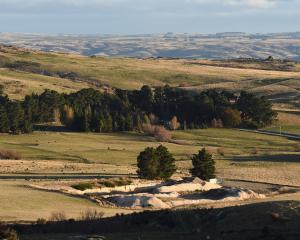

It is a brave attempt by a coalition of 40 prominent scientists in relevant fields (evolutionary biology, neural science, psychology, etc.) to promote the idea that non-human animals are actually conscious.
Anybody who lives or works with animals assumes that they are conscious, but that’s not how the science works. Scientists’ default assumption for centuries has been that only human beings are really conscious.
Until proven otherwise, other living things are just clockwork biological machines with no inner life.
If you are in the process of reducing most other animal life on the planet to subservience, as we were doing when we built our civilisation, this is a comforting opinion to hold. What we are doing to the animals does not hurt them, because there’s no ‘I’ inside them that can feel pain or fear or loss.
Eight billion human beings, by weight, now account for 36% of the mammalian life on the land surface of the planet. Our domesticated livestock, bred, raised, slaughtered and eaten by human beings, account for fully 60% of the total (and "wild" animals only for 4%). So it is obviously preferable to see our animals as a non-conscious asset, not a vast slave empire.
This required a great shift in our viewpoint. Human hunter-gatherers "knew" that animals were conscious and had rituals of apology when they killed them.
But the reassuring doctrine of human exceptionalism triumphed everywhere in the "civilised" world — and the scientists, people of their time, just went along with it.
This was always wilful blindness. It’s perfectly true that we have no direct evidence for the consciousness of animals, but neither do we have any direct evidence for the consciousness of other human beings. We simply assume the latter by observing their actions. Why would we not do the same with animals, at least as our default assumption?
Well, it took a few centuries, but some scientists are finally noticing the hypocrisy of the orthodox position on consciousness.
They are going up against a long and strong tradition, so their language is cautious and tentative, but they are challenging the whole structure of denial head-on.
Here’s what the Declaration on Animal Consciousness says: "First, there is strong scientific support for attributions of conscious experience to other mammals and to birds."
For example, many species recognise themselves in mirrors and seem aware that the reflection is not a different animal but just an image of themselves.
"Second, the empirical evidence indicates at least a realistic possibility of conscious experience in all vertebrates (including reptiles, amphibians and fishes) and many invertebrates (including, at minimum, cephalopod molluscs, decapod crustaceans and insects)."
This is very bold, especially when it comes to creatures like flies, lobsters and octopus.
But once again, the evidence of consciousness is there — not conclusive, but strongly indicative. And then comes the killer conclusion.
"Third, when there is a realistic possibility of conscious experience in an animal, it is irresponsible to ignore that possibility in decisions affecting that animal. We should consider welfare risks and use the evidence to inform our responses to these risks."
In other words, don’t kill animals for food.
The advocates for recognising animal consciousness are being deliberately vague here. They are well aware that if we acknowledge our shared consciousness, then perhaps we must apply similar moral standards to our behaviour and not kill other conscious beings.
It’s too soon to have that conversation, but everybody knows it’s out there waiting.
Happily, this may ultimately prove to be a less agonising moral dilemma than it seems. The crisis in biodiversity, linked to the climate crisis and almost as grave, is going to impose its own priorities on the present system of food production.
In order to preserve the minimum biodiversity necessary for the long-term health of the biosphere, the human race must restore at least half the land now used for growing crops to its original ecosystem functions over the next several generations.
Fortunately, a new technology is making that a realistic possibility.
Precision fermentation or "food from the sky" — protein grown in vats from microbes that double their numbers every three hours given only hydrogen, carbon dioxide, water and light — is already being produced in volume in Solar Food’s prototype factory in Finland. It requires a modest amount of energy, but it takes almost no land.
People may be disturbed by the microbial origins of this kind of food, but farm animals certainly won’t mind eating it. It will doubtless be a long and turbulent transition, but this is our best opportunity to repair our relationship with the biosphere.
In the long run, we might not even have to kill so many conscious entities.
• Gwynne Dyer is an independent London journalist.












